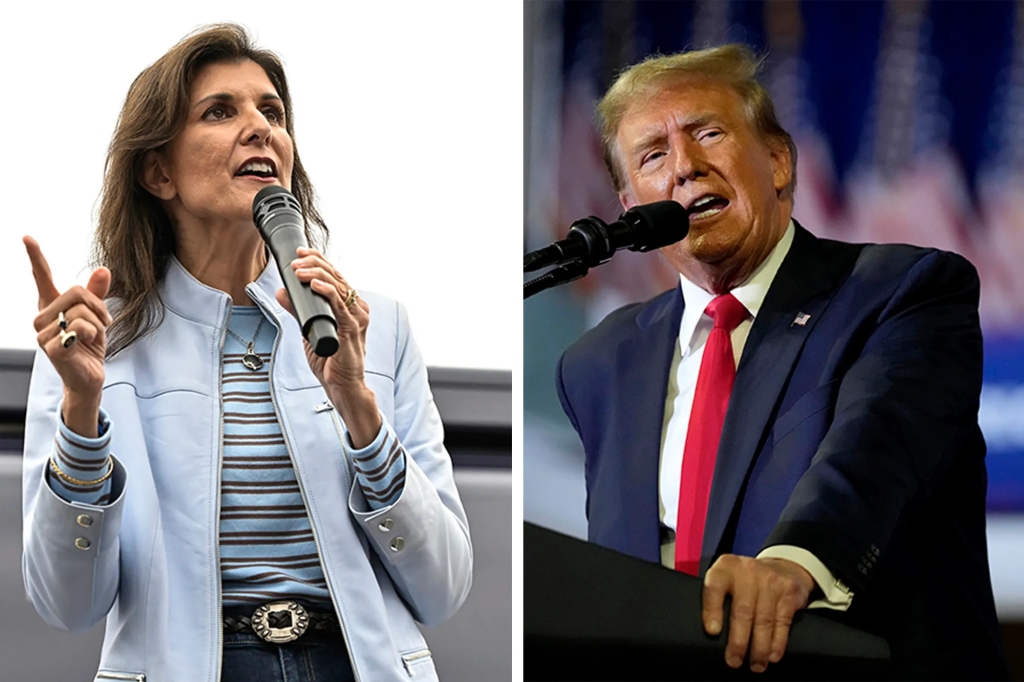On March 5th, the most significant event of the United States primary calendar will take place. Dubbed Super Tuesday, this electoral occasion derives its name from the multitude of states simultaneously selecting candidates in the race for presidential nomination.
Fifteen states are engaged in a contest between two contenders: Nikki Haley and Donald Trump. Nikki Haley has garnered some delegates despite not clinching victory in any of the five preceding primary contests. This is due to the proportional distribution of delegates in certain states; however, in the majority, the “winner takes all” method is applied, whereby the victor claims the entirety.
Conversely, President Donald J. Trump has emerged triumphant in each of the five states, boasting substantial margins. This affords him a significant lead in delegates over Haley, though not yet sufficient to secure the nomination.
Thus, Super Tuesday assumes crucial importance as it could propel Trump closer to the necessary delegate count. Furthermore, if polls hold true, there exists the possibility of Nikki Haley suspending her campaign.
To comprehend our current standing and forecast our trajectory, let us focus on the numbers. To secure the nomination, the Republican candidate must amass at least 1,215 delegates out of the 2,429 available. To date, Donald Trump has secured 122 delegates, while Nikki Haley holds 24.
On Super Tuesday, a total of 854 delegates will be up for grabs.
Drawing from these figures, various scenarios can be speculated upon. Firstly, neither candidate may secure the nomination this coming Tuesday, as neither would attain the requisite delegate count. The second conclusion is that, if polls are accurate, Donald Trump would come tantalizingly close to reaching the magical number of 1,215.
The states holding primary elections this Tuesday are: Alabama, Alaska, Arkansas, California, Colorado, Maine, Massachusetts, Minnesota, North Carolina, Oklahoma, Tennessee, Texas, Utah, Vermont, Virginia, and American Samoa. Both parties are participating in all except American Samoa, where only Democratic primaries will be held, and Alaska, where only Republicans are participating.
We will focus on the Republican primary. What do the polls say?
According to the Real Clear Politics polling average, Trump’s chances of clinching the Republican presidential candidacy stand at 78.7%, compared to Haley’s 15.3%.
Now, onto the pivotal question. Will the former UN ambassador withdraw from the race if Super Tuesday proves adverse, as indicated by the polls?
Haley’s campaign strategy has aimed, from day one, to persist in the race despite results, speculating on adverse scenarios that could hinder Trump’s campaign.
Initially, Haley’s campaign enjoyed considerable financial backing, affording it flexibility to continue irrespective of outcomes. Additionally, both she and her team have banked on the possibility of a legal setback against Trump that could impede his path to nomination.
However, significant shifts have occurred in recent hours. Following defeats in Michigan and her home state of South Carolina, where she suffered a substantial loss, several major sponsors of her campaign have withdrawn support. Although she still maintains financial solidity, the strategy of standing firm despite results has altered. Now, the objectives are short-term, focusing on reaching Super Tuesday to assess the results of a larger pool of voters across a significant variety of states. From there, a decision will be made, one that has been hinted at from her inner circle as a potential withdrawal from the race.
Another significant change relates to expectations of a legal setback that could limit Trump’s campaign. This variable has shifted due to the Supreme Court’s decision to review the case on whether the former president enjoys presidential immunity.
This decision has altered the timelines of justice, potentially clearing the path for Trump’s campaign until November, just after the elections.
Given this scenario, it would be logical for Haley to withdraw her candidacy if results were adverse. However, she still holds an ace up her sleeve that could allow her to press forward, and it pertains to the financial backing of her campaign compared to Trump’s campaign.
Poll numbers favor Trump in all scenarios, but as reported by the Wall Street Journal, the financial situation is not favorable for him. His campaign is experiencing significant fund losses due to multiple litigations initiated by activist judges.
Campaign funds are crucial as they sustain the candidate’s movements, advertisements, and logistical expenses. However, despite any financial adversities the Trump campaign may face, there is no extreme financial case that would eliminate him from the race.
Therefore, despite all speculations, everything indicates that the outcome is sealed, and Donald Trump will secure the necessary delegates for his nomination by mid-March. While sponsors and partisan judges push against the one who came to “drain the swamp,” voters are marking the path back to the White House for Donald J. Trump.
When will we know the results?
This will depend on each state, but generally, polls close between 7:00 p.m. and 8:00 p.m., and results are swiftly announced, except in California, where vote counting could extend until the following day.
The California factor could delay Haley’s decision if she chooses to withdraw, as vote counting might prolong for at least a day. However, this will remain uncertain until she announces her decision. As long as her campaign maintains sufficient funding, anything is possible in the realm of Haley.
